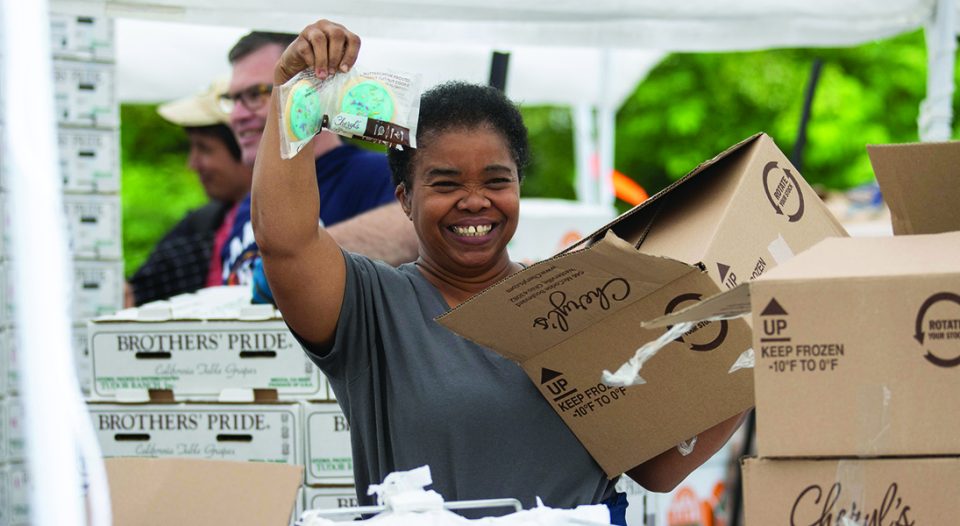Congregations volunteer, donate, cook, serve and care for the hungry in our communities. Despite these efforts, 2 out of 3 kids who are born into poor families will likely remain in or near the poverty level their entire lives (nccp.org).
Linking the food pantry at Church on Oakland Park in Columbus, Ohio, with conversation, relationships and advocacy reshaped how parishioners and community members walk with one another toward a more just and equitable world. “Far too often, well-meaning people of faith end up advocating for people in need without ever actually getting close enough to ask what the real needs are,” said its pastor, Jacqui Buschor. “By linking direct service, mutual community and advocacy, we are better able to overcome our own biases and assumptions about what our neighbors need.”
A Hunger Network in Ohio resource, “7 Tips to Planning Service Projects,” reads: “Our charity is essential to help that child receive their daily bread after going without it. … The reality is justice-work is only one or two steps beyond what we are already doing. By listening, learning, and opening ourselves for change we can modify existing service to both meet the immediate need in front of us while looking to address the root causes of hunger, division, and fear in our world” (hungernetohio.com).
Replacing a “service for” mentality with a “service with” mindset responds to love of our neighbors. To end hunger, first talk with those who are hungry, learn about the issues in your community, join diverse coalitions and advocate with one another until all have their daily bread.



